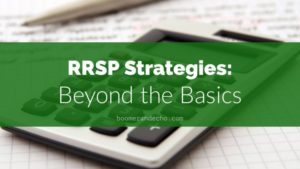The Dream Stage
The most common way to start retirement planning is to determine how much money we will need. But, there is no magic number for everyone. Each person, or couple, is unique. A happy, fulfilling retirement means different things to different people. The amount you need depends on your lifestyle choices, so you won’t know exactly until you decide on what you want to do.
Retirement is not a one-time event. It’s an ongoing process that can last thirty years or more. It begins with focusing on what’s truly important to you and defining your hopes for the future. You probably have some idea of how you’d like to spend your retirement. But for now, don’t focus on the budget. Focus on ideas. Start listing all the things you want to do. What activities will you continue, and what new ones do you want to try? These activities could include travel, socializing, being with grandchildren and other family members (how much time? every weekend or just special occasions), playing sports, volunteering, reading, gardening, or crafts.
This doesn’t have to be a bucket list – just things that will give you pleasure. Get out your notebook and be as specific as you can. Don’t just write “travel,” write “take a round-the-world cruise,” or “see the African savannah by hot air balloon.”
Retiring Couples
Just because you’re married doesn’t mean you’re at the same place in your careers. Although you may be ready to focus on your flute playing, your spouse might still want to head to the office every day. Sometimes people aren’t quite ready to give up working yet for whatever reason. But at some point you will be retired together, and before that time you need to have a serious discussion with your spouse. Partners often have dramatically different ideas about what retirement will look like. One RBC retirement poll discovered that nearly 70% of pre-retired Canadians aged 50 and older have yet to discuss their hopes for their post-career lives with their spouse or partner.
Communication is key. You and your spouse need to be on the same page. Often people have very different visions of retirement. You may want to buy a motor home and barrel across the country, whereas your spouse may want to spend more time with the grandkids, or volunteer for a favourite non-profit. For decades you’ve spent most of your day apart.
Spending 24/7 together can require some adjustments. So you’re not continuously in each other’s pocket, find a balance between the amount of together time and time you spend apart pursuing individual interests.
Prioritize
Once you’ve decided on what you want to do, start doing your homework. If a Mediterranean cruise is the first thing on your agenda, start researching cruise lines, look at prices and schedules, and so on.
 Marie Engen is the “Boomer” half of Boomer & Echo. In addition to being co-author of the website, Marie is a fee-only financial planner based in Kelowna, B.C. This article originally ran at the Boomer & Echo site on January 9 and is republished here with permission.
Marie Engen is the “Boomer” half of Boomer & Echo. In addition to being co-author of the website, Marie is a fee-only financial planner based in Kelowna, B.C. This article originally ran at the Boomer & Echo site on January 9 and is republished here with permission.
Share this:
- Click to share on X (Opens in new window) X
- Click to share on LinkedIn (Opens in new window) LinkedIn
- Click to share on Facebook (Opens in new window) Facebook
- Click to share on Reddit (Opens in new window) Reddit
- Click to email a link to a friend (Opens in new window) Email
- Click to print (Opens in new window) Print





